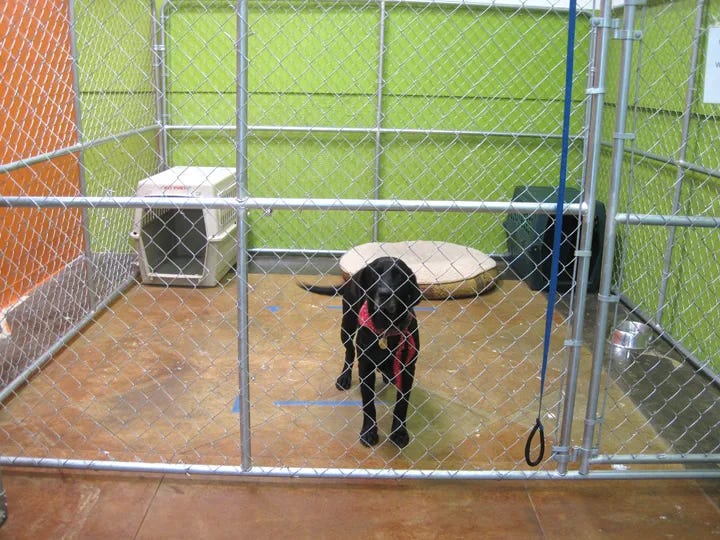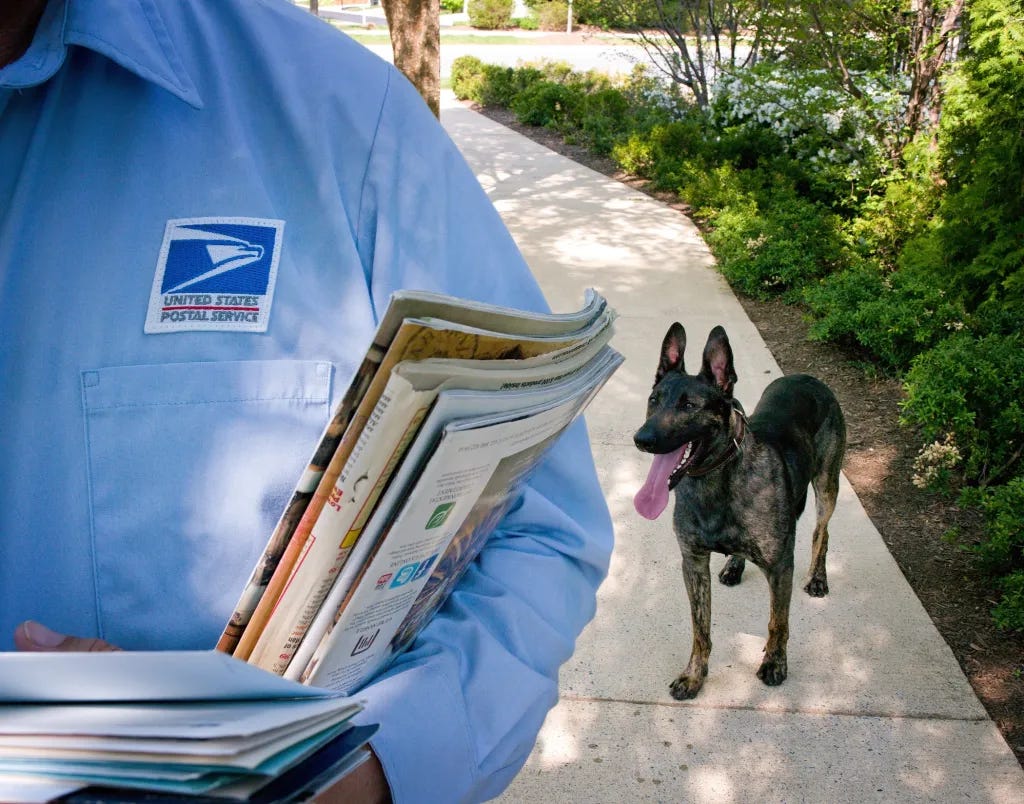A market-based approach to increasing pet-friendly housing
News and headlines for June 8 - 14, 2024

In other news: The anniversary of an important No Kill milestone. The last three gassing pounds in America. Austin Pets Alive employees unionize to the detriment of animals. Dogs bite a small number of mail carriers. A Colorado college adds a pet-friendly dorm but makes the policy breed discriminatory. Another week, another pet-related recall. People don’t eat French fries for their health or for animals. An elephant never forgets a name. Vermont creates a new animal welfare division. A smartphone app can tell if your cat is in pain. New York to join New Jersey, Connecticut, and Maryland in protecting horseshoe crabs.
These are some of the stories making headlines in animal protection:
The anniversary of an important No Kill milestone
This week marked the 23rd anniversary of when No Kill went from the theoretical to the real. On June 10, 2001, not a single No Kill community existed in the U.S. On June 11, there was one.
Read the inspiring story of how it was achieved, how to run a shelter without killing and turning animals away, and why such an approach should be mandatory in every community in the country.
The last three gassing pounds in America
There are only two U.S. states where the gas killing of dogs and cats is still legal — Missouri and Wyoming. And in those states, there are only three pounds where they are still used.
In Missouri, that pound is in Poplar Bluff.
In Wyoming, the pounds are in Evansville and Green River.
The Green River police department, which oversees the facility, said that pound staff who gas animals to death care about them and treat them “fairly,” a claim no one believes as there is no progressive sheltering agency of any scope or stature willing to embrace gas systems for the killing of animals. When the chamber fills with gas, the animals inside gasp for breath, feel a searing pain in their lungs, and often claw at the chamber door or throw themselves against the sides, desperately trying to escape.
Unfortunately, efforts to shut down the gas chamber in Green River were dealt a setback after Best Friends Animal Society gave the pound a “national award” for its “achievements,” even though it spent the year gassing animals.
Austin Pets Alive employees unionize to the detriment of animals
Workers at Austin Pets Alive Austin Pets Alive (APA) voted to unionize, “making it the country’s biggest union of animal shelter workers.”
In their successful bid to form the union, the employees cited poor working conditions, management indifference and ineptness, and inadequate animal care.
Under the incompetent leadership of Ellen Jefferson (and Kristen Hassen until she was forced to resign), APA embraced regressive policies and regressive pound directors, encouraged shelters to turn away stray animals, and even embraced animal abusers. APA sacrificed No Kill success in Austin and nationally for personal ambition by turning the movement to protect animals into a social club of “rock stars” and “friends” with themselves at the head. Indeed, Austin Pets Alive bears much of the blame for the rise of regressing practices nationally that lead to more strays and more killing.
To learn more about the co-option of Austin Pets Alive, click here.
Given management incompetence, it is no surprise that employees are revolting. But a union won’t benefit animals. Once arbitrary management practices are addressed, unions must justify their continued existence and the pay they take from employee checks. How? By becoming arbitrary themselves. In many pounds, unions forestall progress, legitimize regressive practices, undermine animal care, and defend neglectful and even abusive staff — the very things they accuse management of. Instead of a union, Austin Pets Alive needs to get back to its roots by cleaning house — from top to bottom.
Dogs bite a small number of mail carriers





